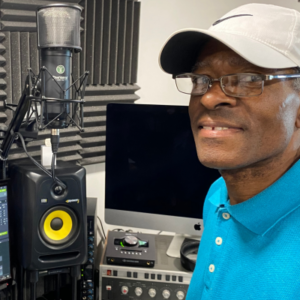Melvin Ragin was usually credited under his pseudonym of Wah Wah Watson. Like Dennis Coffey, he brought an up-date to Motown’s original guitar sound. Ragin was born in 1950 in Richmond, Virginia, but by the age of eighteen he was in Detroit, where he became the musical director for Bobby Taylor and the Vancouvers. After touring with the Vancouvers as the opening act for the Temptations, Ragin took the opportunity to sit in with the house band at the Twenty Grand Club, which soon brought him to the attention of Norman Whitfield. He was swiftly brought into Studio A and went on to play sessions for the Temptations, the Jackson 5, the Four Tops, Gladys Knight & the Pips, Marvin Gaye, and the Supremes.
At the start of his time at Motown, Ragin had not yet acquired the nickname of Wah Wah Watson, as he didn’t yet own the necessary gadgetry to create that sound. He learned all about the Cry Baby wah-wah pedal from Dennis Coffey, whose sound Ragin wanted to emulate. He soon bought a Cry Baby pedal and set about practising to see what sounds he could generate with it. Before too long, he was a master.
Ragin’s Wah Wah Watson nickname was established by the early seventies, as he became one of the foremost exponents of funky guitar playing and featured on many of Motown’s hits from this period. Four stand-out Motown albums that demonstrate his skills are “ABC” (The Jackson 5, 1970), “All Directions” and “Masterpiece” (The Temptations, 1972 and 1973), and probably the pick of them all “Let’s Get It On” (Marvin Gaye, 1973).

Melvin Ragin (Wah Wah Watson)
Photo: Ragin’s Album “Elementary”
When Motown moved to Los Angeles in 1972, Ragin went too. As Motown wound down, he branched out, starting a collaboration with Herbie Hancock in 1974 that lasted several years, and then recording his own album “Elementary” in 1976 for Columbia Records. He also worked with Barry White, Smokey Robinson, Quincy Jones, Bill Withers and many more well-known performers during the seventies. Two of his biggest successes were “Car Wash” (Rose Royce) in 1976 and “I Will Survive” (Gloria Gaynor) in 1978, both of which earned platinum certification from the RIAA. One of the biggest accolades came in 1979, when he played on Michael Jackson’s album “Off the Wall”.
Later, into the twenty-first century, his successes continued thanks to his work with major artists including Angie Stone, Janet Jackson and Alicia Keys. Ragin died in California in 2018. His legacy is impressive; he played on more than one hundred and fifty number one hits!

















